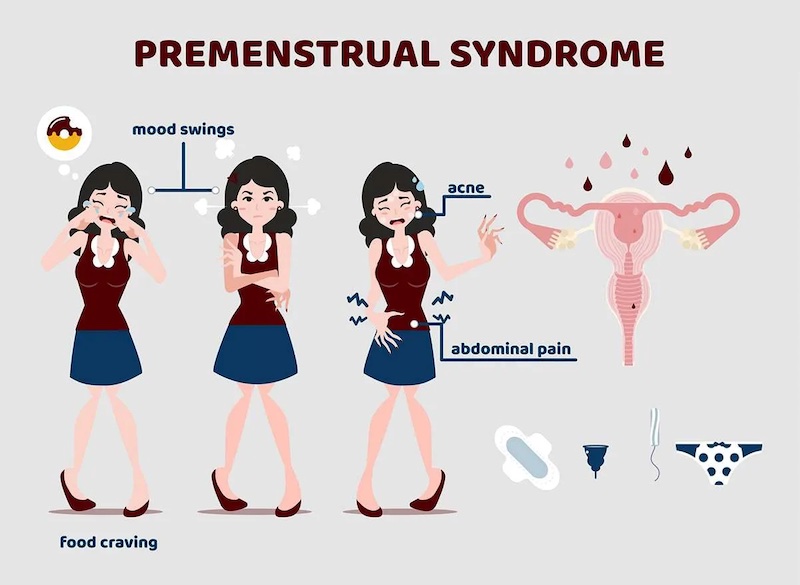


Date: 11 Aug 2025
Premenstrual Syndrome (PMS) affects up to 75% of menstruating women, bringing with it a range of physical, emotional, and behavioral symptoms that can disrupt daily life.
While PMS is a natural part of the menstrual cycle, its impact can often be minimized through intentional lifestyle choices.
In particular, adopting a balanced diet, engaging in regular physical activity, and understanding preventive strategies can significantly reduce the severity and frequency of symptoms.
What you eat and drink can influence how your body reacts before your period. Certain substances are known to aggravate PMS symptoms and should be limited or avoided:
Instead, opt for complex carbohydrates, fiber-rich fruits and vegetables, lean proteins, and foods high in magnesium and vitamin B6 to balance hormones naturally.

Calcium plays a crucial role in alleviating PMS symptoms, including mood changes, bloating, and fatigue. A daily intake of 1,200 mg through diet or supplements can significantly reduce physical and emotional discomfort.
Magnesium, Vitamin D, B6, and E are also beneficial and often recommended as part of PMS management. These nutrients help regulate hormones and support nerve and muscle function, improving overall well-being during the menstrual cycle.
Physical activity offers powerful benefits for managing PMS. It enhances blood circulation, reduces bloating, and releases endorphins, natural chemicals that improve mood and reduce pain.
Recommended exercises include:
Just 30 minutes of moderate activity five times a week can ease both the emotional and physical burden of PMS. Exercise also promotes better sleep and helps maintain a healthy weight, which is essential for hormonal stability.
Stress can intensify PMS symptoms. Managing it through relaxation techniques such as meditation, deep breathing, and mindfulness can help regulate mood and energy levels.
Other helpful habits include:
Developing these habits not only supports PMS relief but also improves overall reproductive and emotional health.
Together, these strategies offer a proactive, natural approach to managing PMS without the need for long-term medication.
For women seeking safe and supportive options, the following products from Pharmily Kenya can help manage PMS symptoms effectively:
Managing PMS doesn’t have to involve harsh medications or helpless suffering.
Through intentional dietary choices, avoiding caffeine, sugar, salt, nicotine, and alcohol, alongside regular exercise, adequate calcium intake, and stress management, most women can find effective relief.
Supplementing with supportive products from Pharmily Kenya can further enhance comfort and balance.
Embracing these changes can lead to more predictable, manageable menstrual cycles and a better quality of life every month.